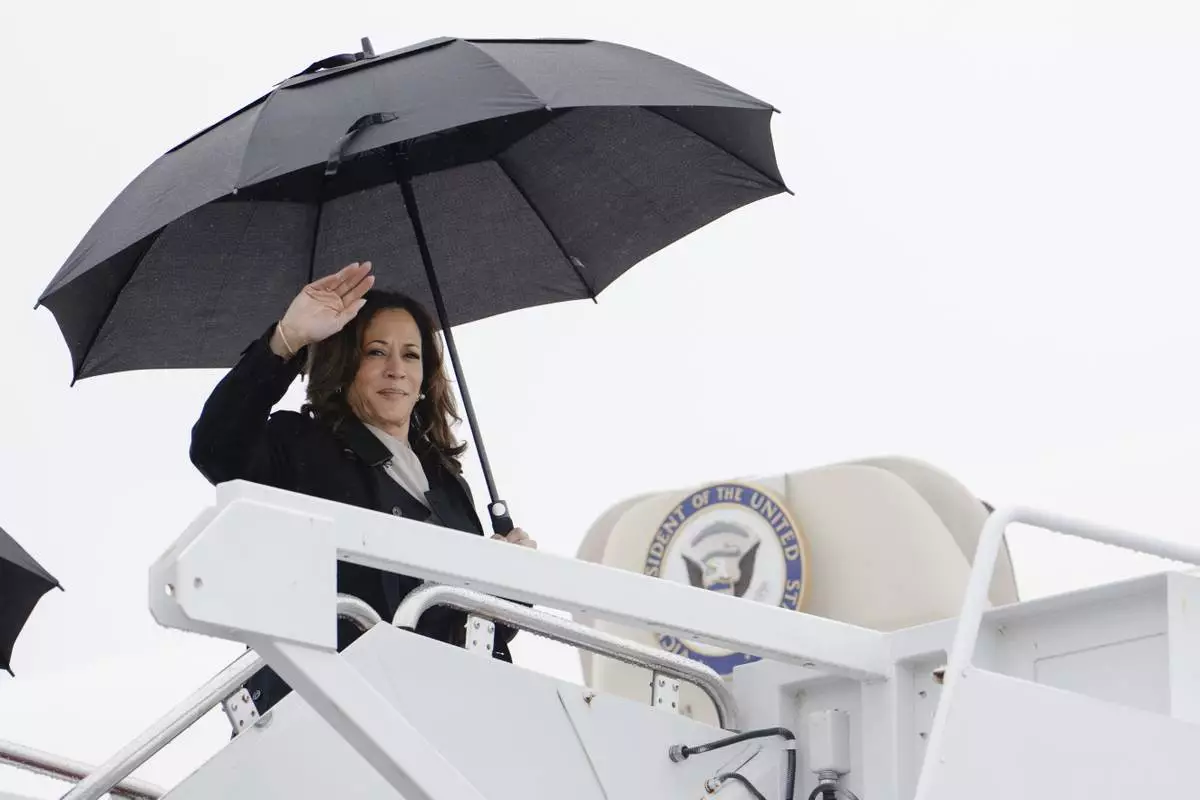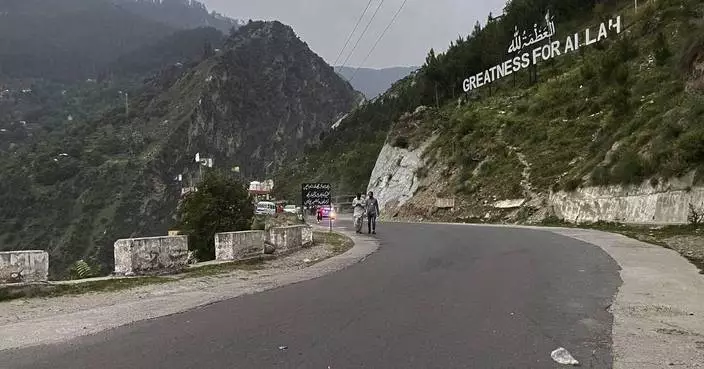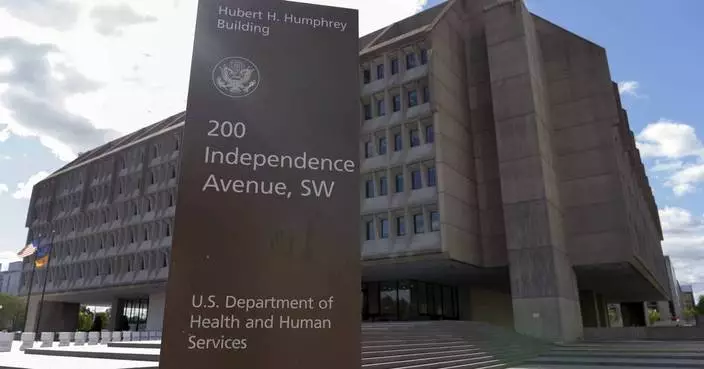If you're trying to get up to speed on Vice President Kamala Harris' swift emergence as Democrats' possible nominee this fall, you really need to know your memes.
From “brat summer” to “coconut tree," it's been a timeline full of Harris-related memes for many people since President Joe Biden exited the 2024 presidential race on Sunday and endorsed his No. 2 to lead the party.
Taking to the internet to pledge their support for her candidacy, Harris' backers, much of the time, are crafting new spins on previous online organisms that at one time had been used by Harris' detractors to throw shade.
There are also celebrities getting in the mix, with some of the association seen as a tidal wave of attention on Harris' candidacy that could help turn back American apathy for what had been a largely binary general election between Biden and GOP nominee Donald Trump.
It also could be a way for Harris' campaign to resonate with younger voters, a group Democrats need to turn out in November.
Here's a meme primer for following Harris' newly launched 2024 campaign:
Coconuts are everywhere in timeline mentions of Harris, an internet organism that began as Harris criticism and is now being embraced by her supporters.
The @KamalaHQ account bio text on X reads simply “adding context,” a reference to a much-memed speech where the vice president emphatically recalled a turn of phrase frequently used by her mother.
“She would say to us, ‘I don’t know what’s wrong with you young people. You think you just fell out of a coconut tree?’” Harris recollected in 2023 at a White House ceremony, clad in a mauve suit. “You exist in the context of all in which you live and what came before you.”
At the time, the somewhat existential-sounding phrase was shared many times over by critics labeling Harris as “drunk” or “crazy.”
In the past two days, online users and politicians have latched onto the clip, sometimes sincerely and sometimes ironically, creating coconut-themed posts in support of her candidacy.
Even Sen. Brian Schatz of Hawaii solidified his endorsement of Harris on X by posting a photo of himself climbing a coconut tree. Colorado Gov. Jared Polis simply posted emojis for a coconut, tree and the American flag on X, too.
“Kamala has a bunch of word salad quotes that are delightfully nonsensical,” said Cory Alpert, a staffer on Pete Buttigieg’s 2020 campaign and former Biden White House advance staffer who describes himself as “chronically online."
“Like you kinda know what she’s trying to say, but it doesn’t really make sense. But it’s the perfect kind of weird authenticity that works online.”
Don't know about “brat summer” yet? Let us help.
Younger celebs are aiming to help Harris by tying her to their viral and loyal social media brands.
Most notably, pop musician Charli XCX posted on X that “kamala IS brat,” a reference to her newly released album “brat” and its rabid summer following. The post has accumulated over 35 million impressions on the app, and Harris’ campaign quickly set its X banner photo to the striking Shrek-green color of Charli’s “brat” album cover.
Viral mashups of “brat” and “coconut tree” together — playing Charli’s music over clips of the Harris quip — have spread widely as well on Instagram, X and TikTok.
And of course there are also the green “brat” T-shirts already popping up, too, as seen in X posts from Fire Island, New York.
It's OK if you're not a math scholar — you can still get this one.
“I love Venn diagrams,” Harris said during an event in 2022. “There's just something about those three circles and the analysis of where there's the intersection right?”
The Republican National Committee posted a clip of the comment on YouTube as a way to criticize Harris. But many of those commenting on the account's posts expressed their own love for the set theory tool that shows overlapping areas of similarity.
Harris' campaign has now seized on the moment, too, with her rapid response operation posting its own Venn diagram on X showing “holding Trump accountable” as the intersection of both the Biden and Harris operations.
Younger voters were already slightly more in-tune with Harris over Biden, and Alpert said those already very online people are accustomed to quickly reposting and sharing content, so maybe the Harris meme moment was meant for many of them.
“The cultural gap here is really stark between Gen Z and a lot of other groups,” Alpert said. “These little moments and lines that Gen Z are picking up and running with, other groups — especially Boomers — seem to find annoying or laughable, because they want the candidate you can get a beer with.”
Younger adults — those between the ages of 18 and 29 — had a slightly more favorable view of Harris than Biden in a July AP-NORC poll conducted after the debate but before Biden announced he was withdrawing as the Democratic nominee, although a significant share said they didn’t have an opinion.
Only about one-quarter of 18-29 year-olds had a somewhat or very favorable opinion of Biden in the poll, and about 7 in 10 had an unfavorable opinion of him. By contrast, about 4 in 10 young adults had a favorable view of Harris, while about 4 in 10 had an unfavorable view and about 2 in 10 didn’t know enough to say.
A similar share of 18-29 year-olds — around 4 in 10 — had a favorable view of Trump in the July poll, while about half had an unfavorable view and about 1 in 10 didn’t know enough to say.
Schatz, the Hawaii senator who posted an image of himself climbing a coconut tree, said that while Harris is not part of Gen Z, what Gen Z wants is not necessarily a candidate their same age, but someone who is “in the pop culture mainstream.”
“We should be winning decisively among young people, and one of the impediments, frankly, was that they didn’t see anyone speaking for Democratic Party values who they found relatable,” he told The Associated Press in an interview Monday. “Politics is definitely about policy, but it’s also about vibes, and the vibes, as the kids say, are immaculate."
Yee reported from Washington. Meg Kinnard reported from Chapin, South Carolina. Associated Press writers Amelia Thomson Deveaux and Mary Clare Jalonick in Washington and James Pollard in New York contributed to this report.
Kinnard can be reached at http://twitter.com/MegKinnardAP

Vice President Kamala Harris boards Air Force Two, Monday, July 22, 2024 at Andrews Air Force Base, Md. (Erin Schaff/The New York Times via AP, Pool)





























































